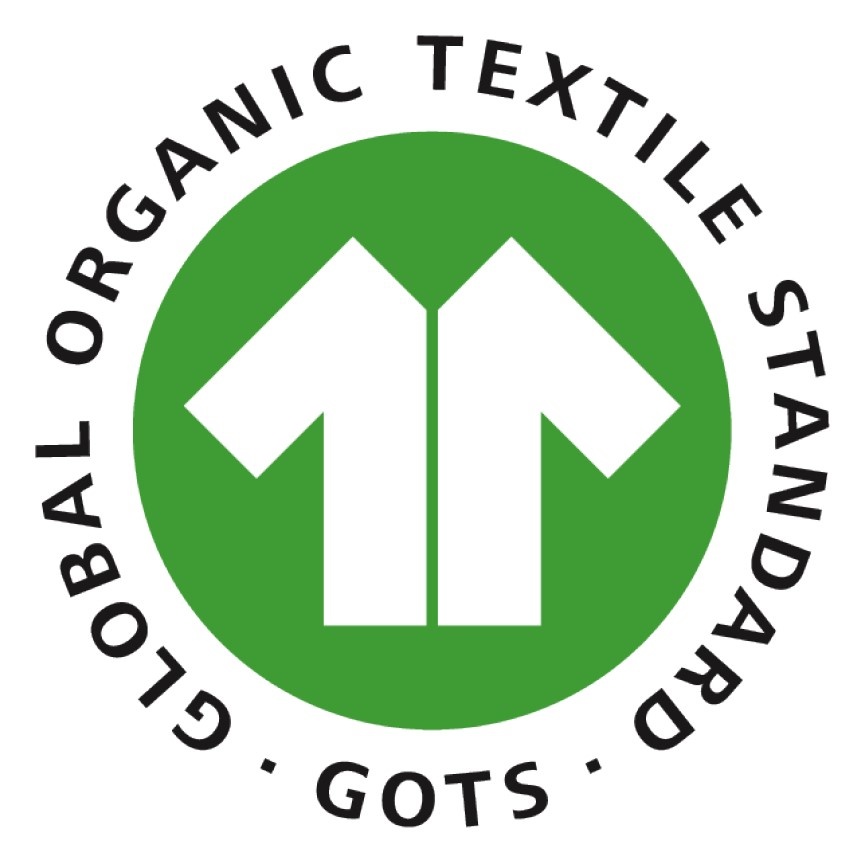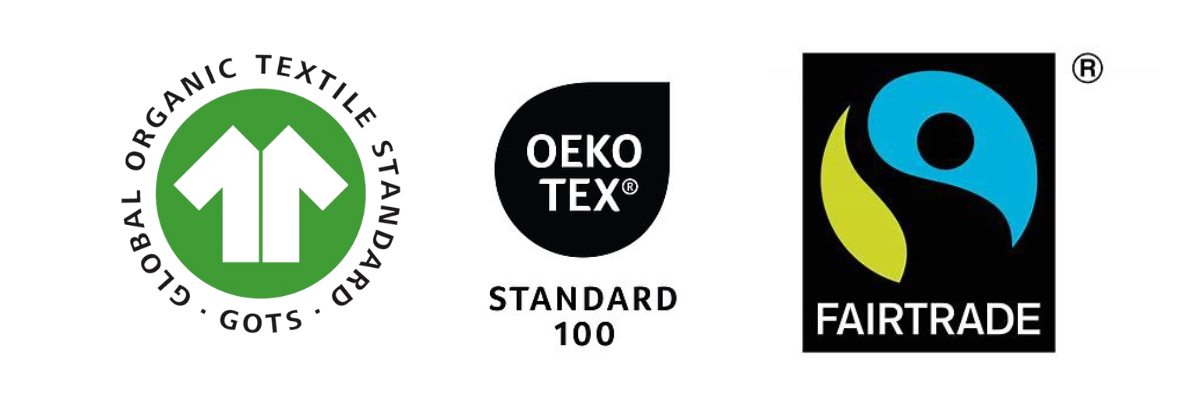Sustainable certificates for textiles
More and more (textile)products are provided with a label with a logo of a certification. Each certification has its own focus; material, production, working conditions, quality for the end user etc. Through all the communications and promises, it can be hard to tell the differences between the certifications and their focus areas. For that reason we decided to make an overview.
FAIRTRADE CERTIFICATE
- Fairtrade focuses on ensuring fair trade and better working conditions for farmers and workers, mainly in developing countries.
- The Fairtrade certificate guarantees that producers receive a fair price for their products, that there is no child labour and that certain social and environmental criteria are respected.
- Fairtrade certification is not specifically aimed at organic production, although some Fairtrade products may also be organic.
OEKO-TEX
Oeko-tex has various sub certificates. The most common and best-known certificate is Oeko-Tex Standard 100. This standard includes the following:

- Oeko-Tex Standard 100 focuses on safety and minimizing harmful substances in textile products. This guarantees the safety of textile products for consumers by testing for harmful substances such as heavy metals, pesticides, allergens, etc.
- Oeko-Tex 100 takes into account the chemical content of the materials and products and sets limits for more than 100 harmful substances.
- The certification process involves testing at all stages of textile production, from raw materials to finished products.
- It is not aimed at organic production of raw materials.
In addition to the Oeko-tex Standard 100, OEKO-TEX also has the following sub certificates for textiles:
- OEKO-TEX® MADE IN GREEN is focused on a traceable product label for all types of textile and leather products that are manufactured in environmentally friendly facilities under safe and socially responsible working conditions. The MADE IN GREEN label assures consumers that the product is made from materials that have been tested for harmful substances. Made in Green also focuses on communicating information about the production chain and traceability of the product.
- OEKO-TEX® ORGANIC COTTON focuses on a caring approach to our environment and your health. For organic cotton certification, genetically modified materials, pesticides and other harmful substances may not be used throughout the entire production process, from agricultural land to the end product.
- OEKO-TEX® STeP stands for Sustainable Textile & Leather Production and is a modular certification system for production facilities in the textile and leather industry. The aim of STeP is to implement environmentally friendly production processes in the long term, improve health and safety and promote socially responsible working conditions at production sites.
GLOBAL ORGANIC TEXTILE STANDARD (GOTS)
- GOTS is a globally recognized standard for organic textile processing.
- It focuses on ensuring environmental and social sustainability throughout the textile production chain.
- GOTS focuses on ensuring criteria such as the use of organically grown fibers, environmentally friendly and socially responsible production processes, limitation of harmful substances and compliance with strict social criteria.
- GOTS certification is awarded to products that meet these comprehensive standards for sustainability and ethical production.
What is the difference between GOTS and Fairtrade?
GOTS focuses on organic production with attention to sustainability and social criteria, while Fairtrade focuses on ensuring fair trade and better working conditions for producers, without specifically focusing on focus on organic production.
What is the difference between GOTS and Oeko-tex Standard 100?
Oeko-Tex Standard 100 mainly focuses on safety and minimizing harmful substances in textile products. GOTS certification focuses on sustainability and social responsibility throughout the entire textile production chain.
What is the difference between GOTS and Oeko-tex made in green?
Generally, the main difference between GOTS certification and OEKO-TEX Made in Green certification is the focus and scope of their respective standards. GOTS is broader and includes sustainability and social responsibility across the entire production chain, while OEKO-TEX Made in Green focuses more on safety, harmful substances and transparency in the production chain.
Bo Weevil has been GOTS certified for decades. We believe that this certificate takes into account the entire spectrum of the textile production process, both environmental and human. The certification looks at cotton cultivation in consultation with bio-diversity, fair wages for employees, safe working conditions on the land and in the workshops, no child labor and no toxic waste flows during the production process. That's what we stand for.







